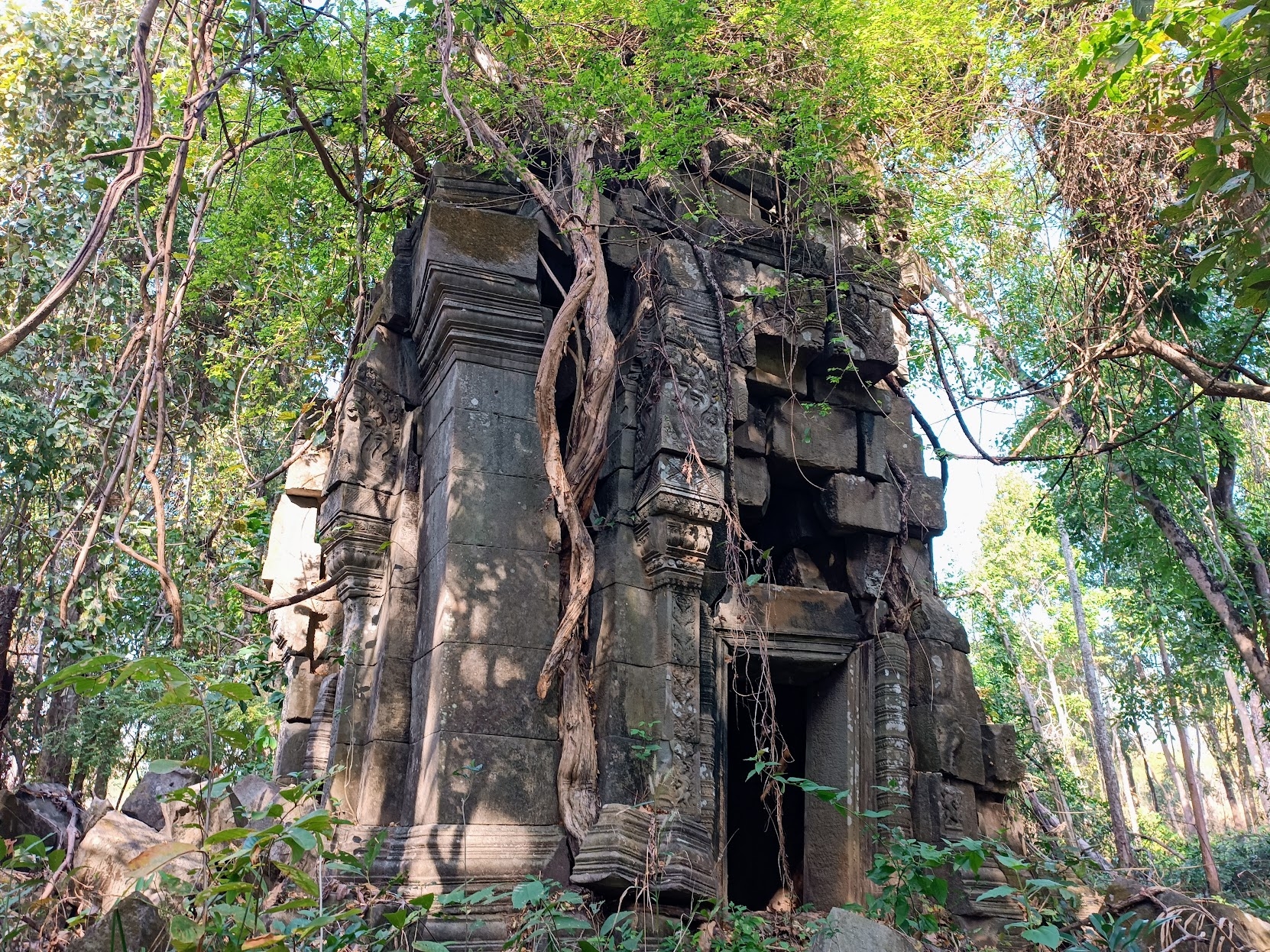Located around 9km south of Choam Khsant in Preah Vihear province, the ancient ruins of Prasat Kang Het feature a grand sandstone tower with an outer laterite enclosure wall. The single central tower, built entirely of sandstone, is standing albeit with a precarious lean to it and whilst tree roots likely sparked that demise, in an odd but familiar twist of fate, they now hold things together and may initiate even further demise if they happen to die off.
It’s noticeable the tower was never fully completed in its day, missing much of the final decoration in places yet the relief carvings that were completed are quite well executed and a joy to admire.
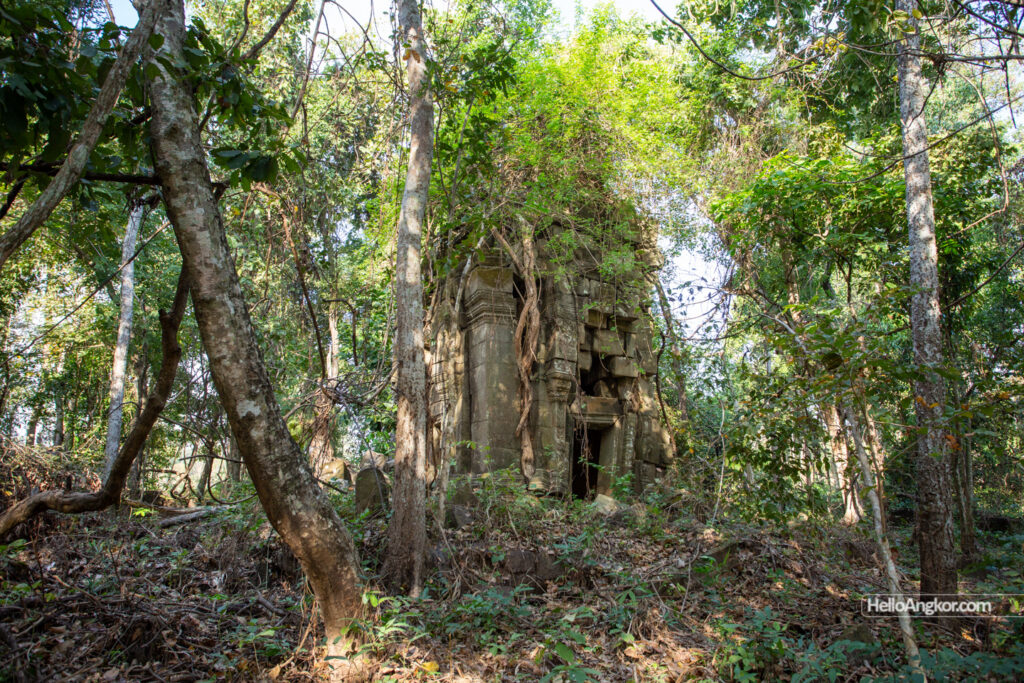

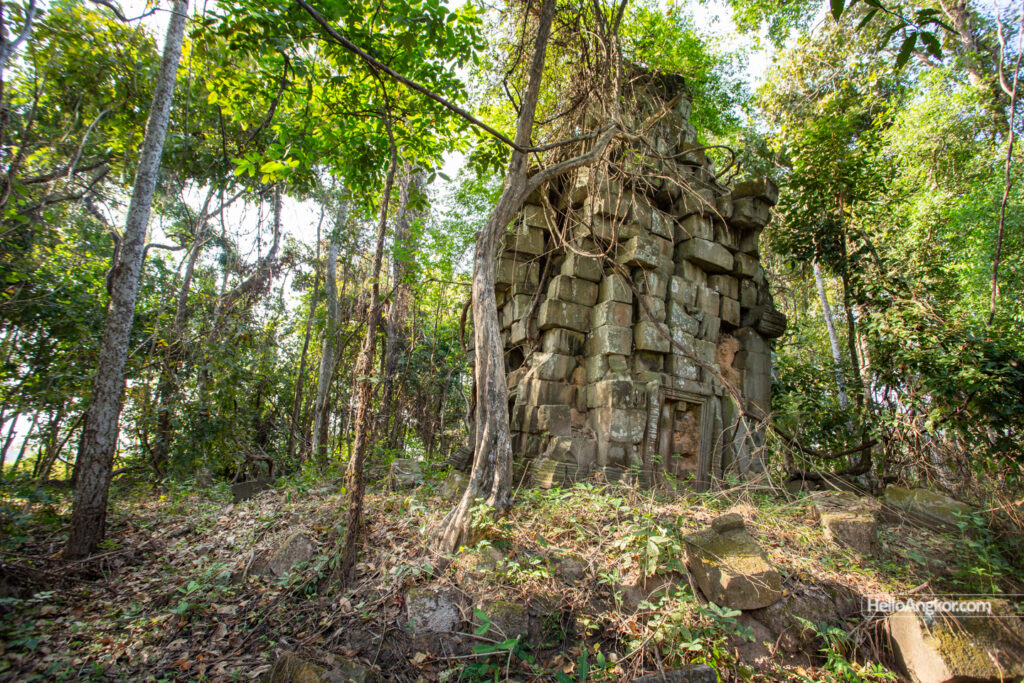

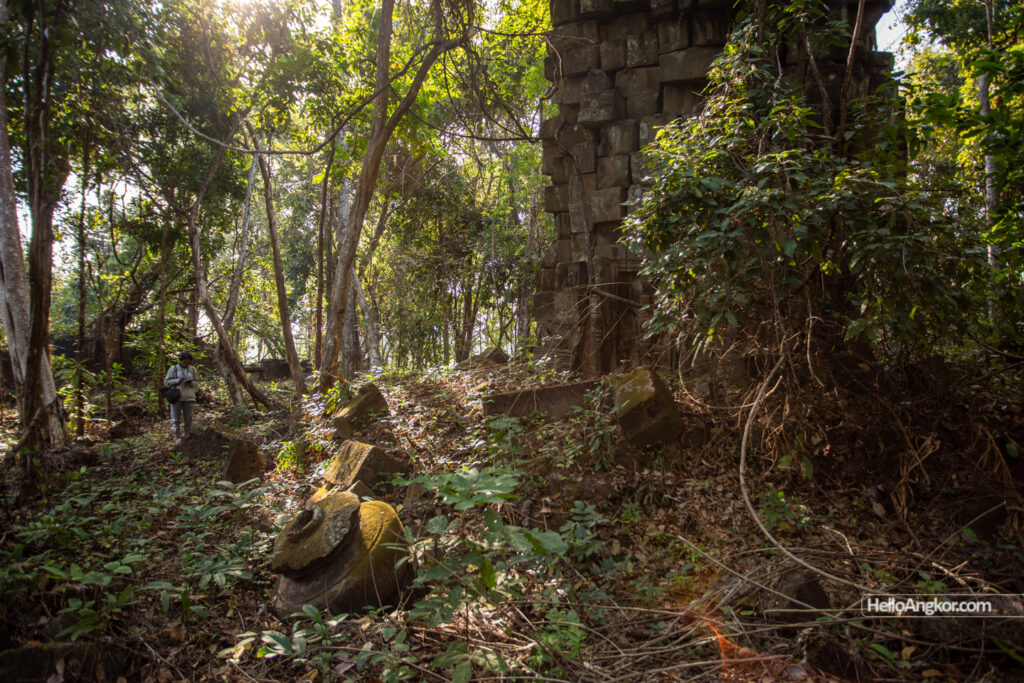
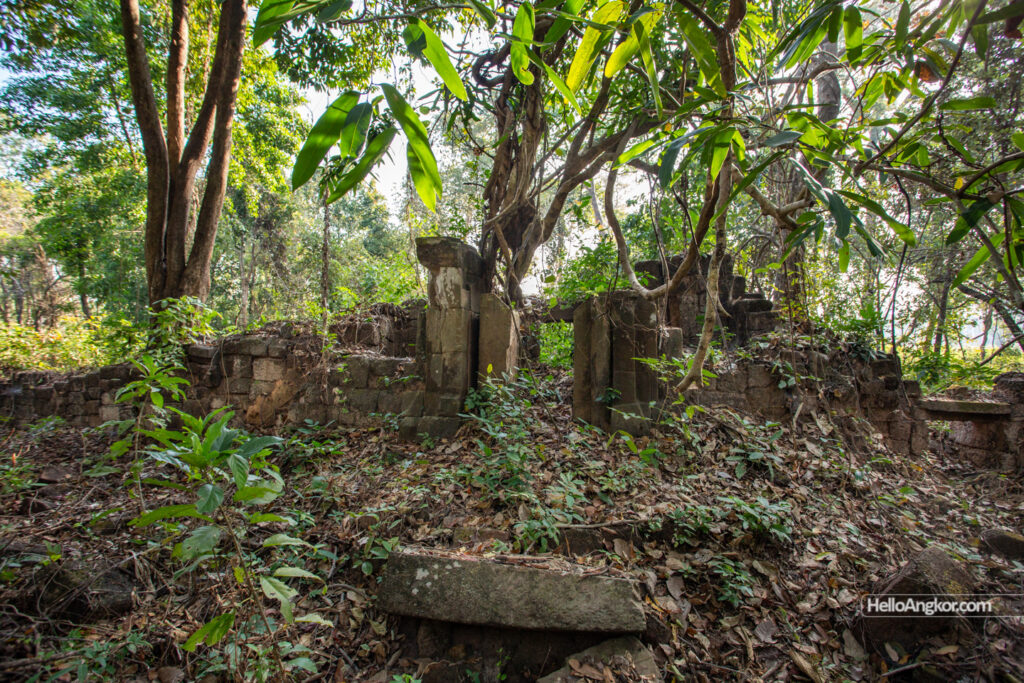
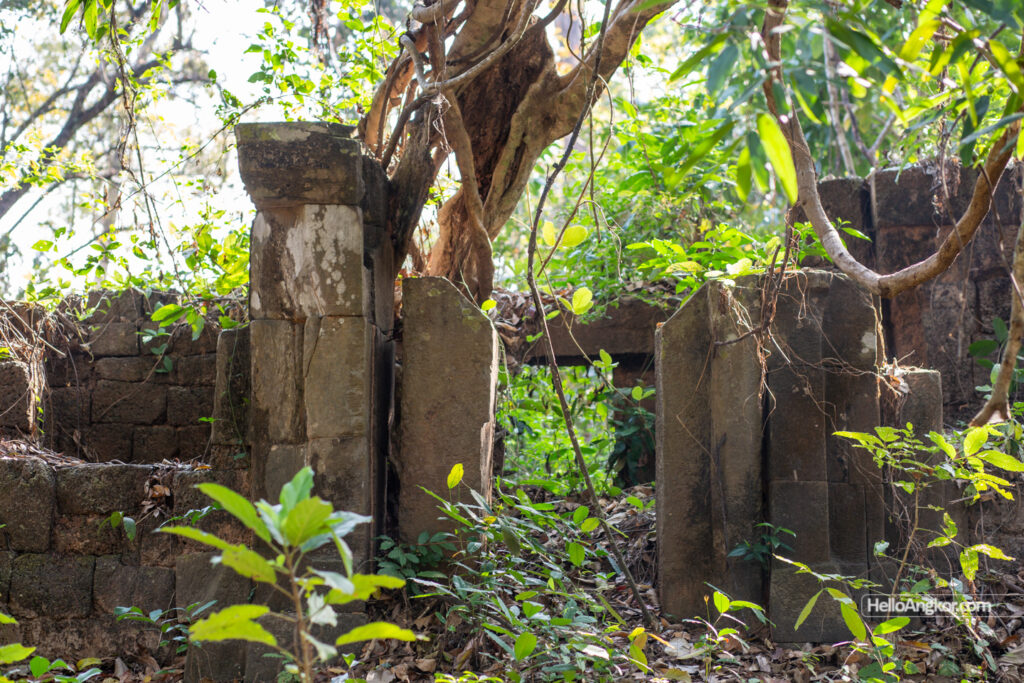
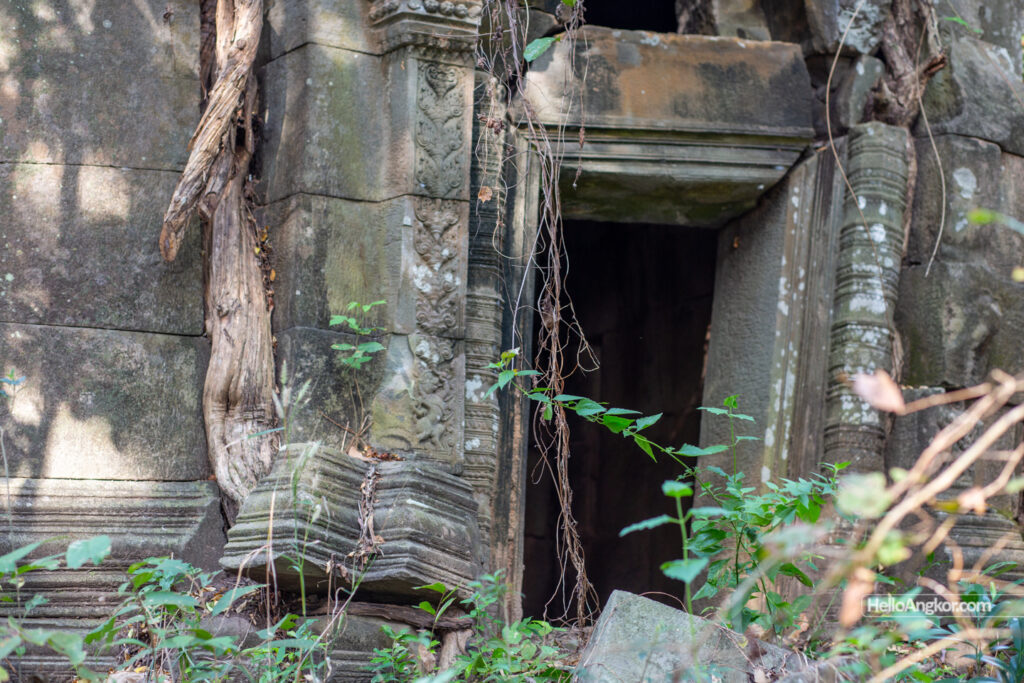
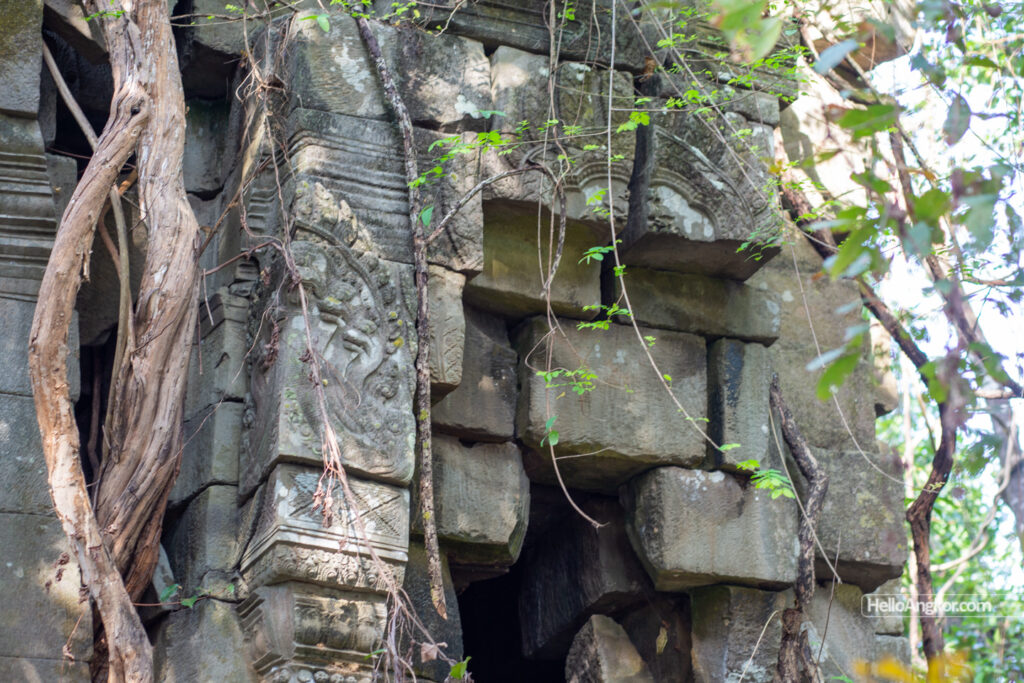
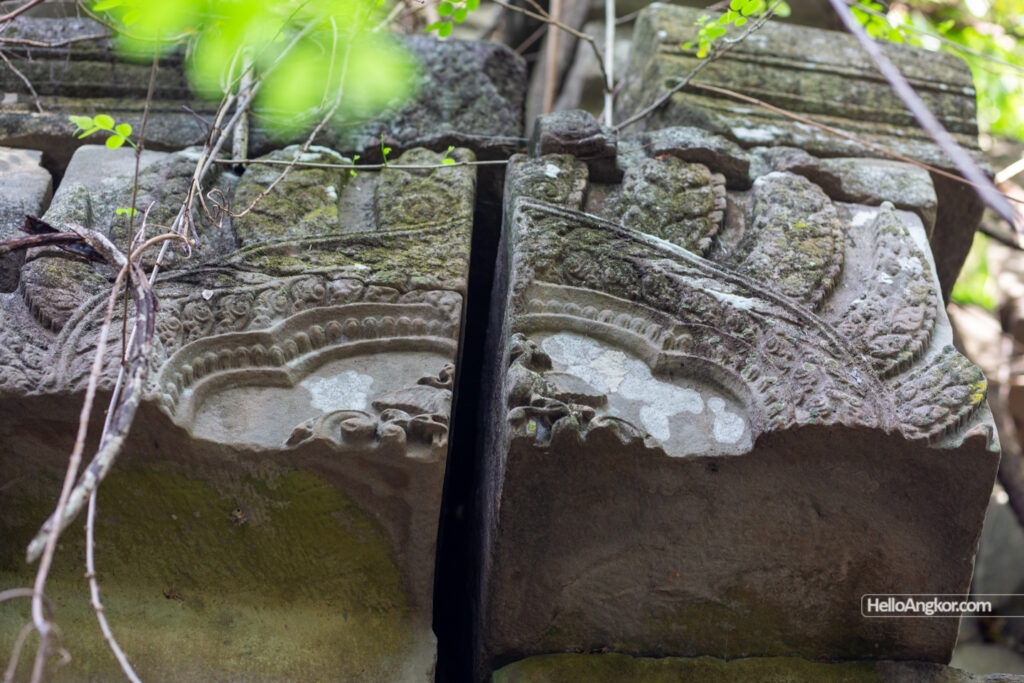
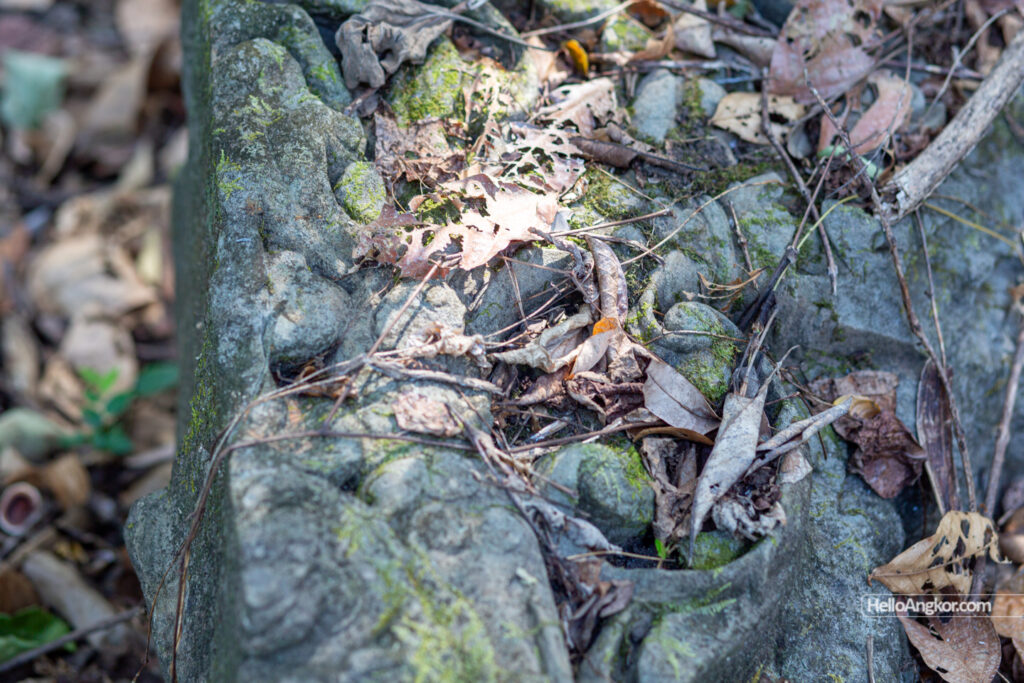
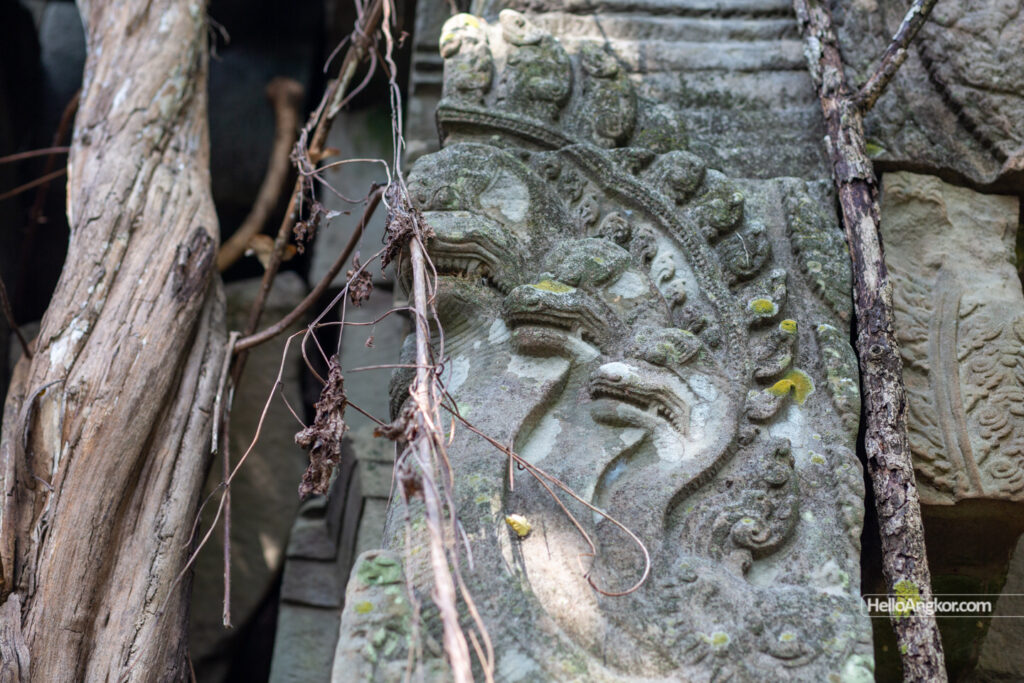

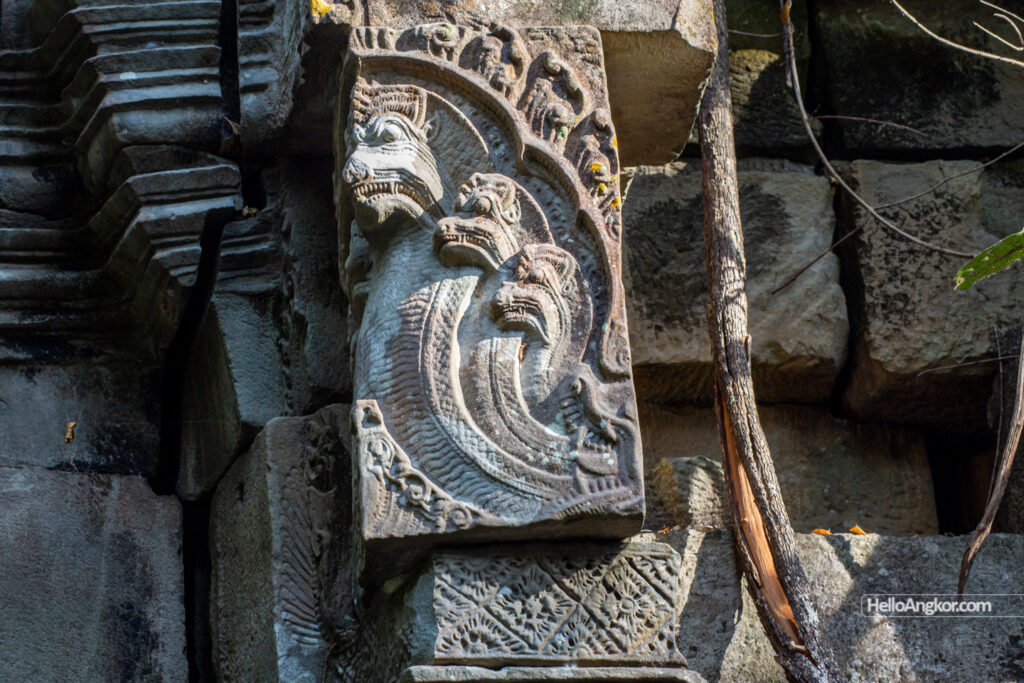
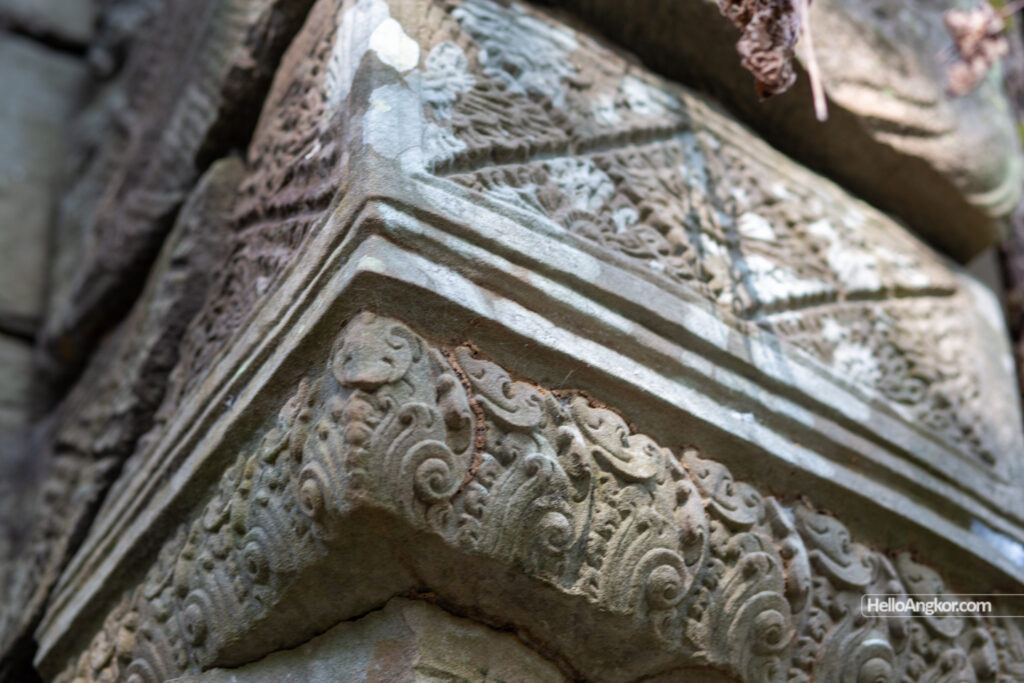
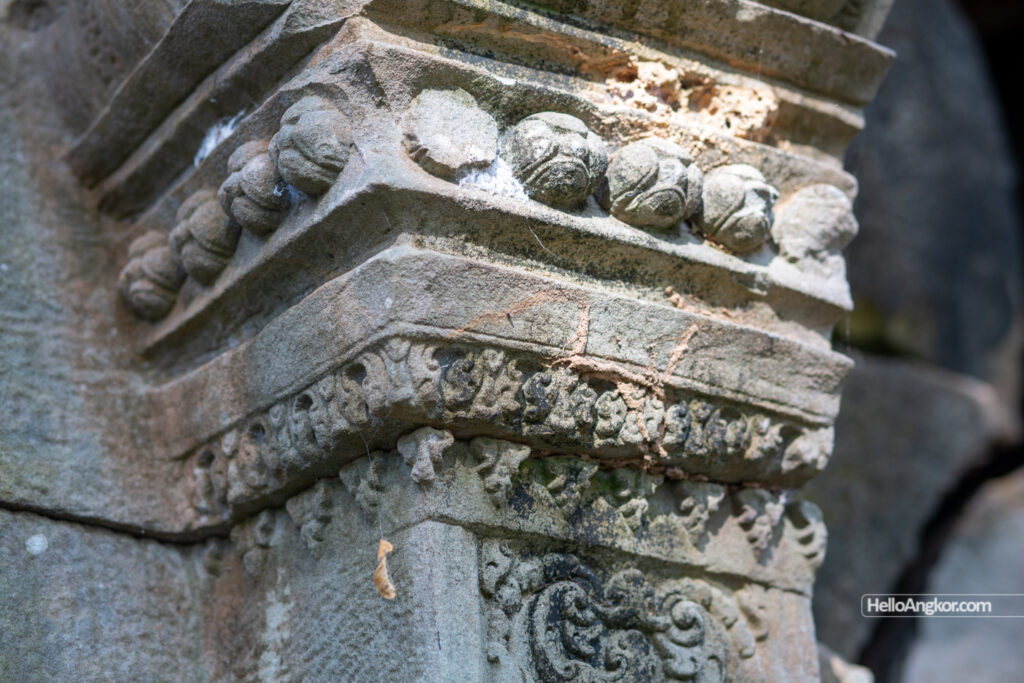
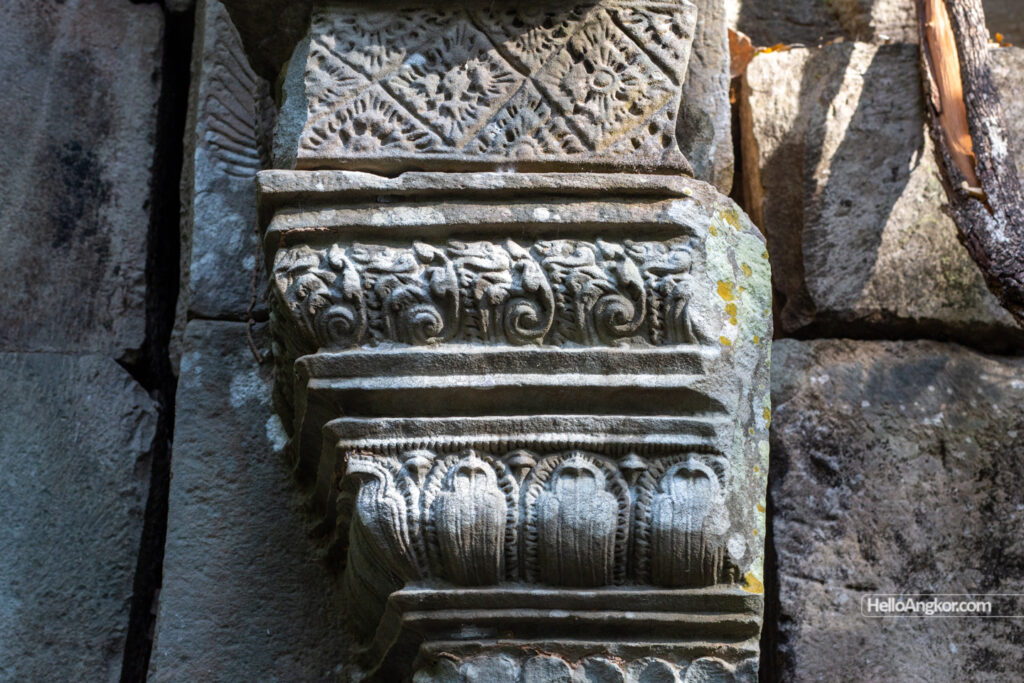
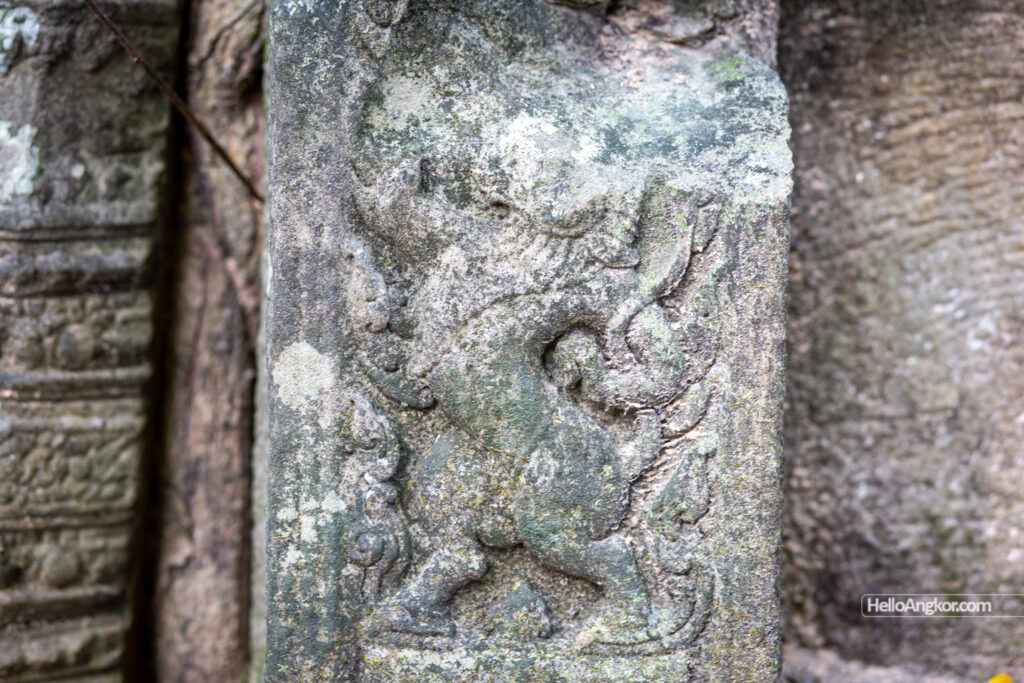
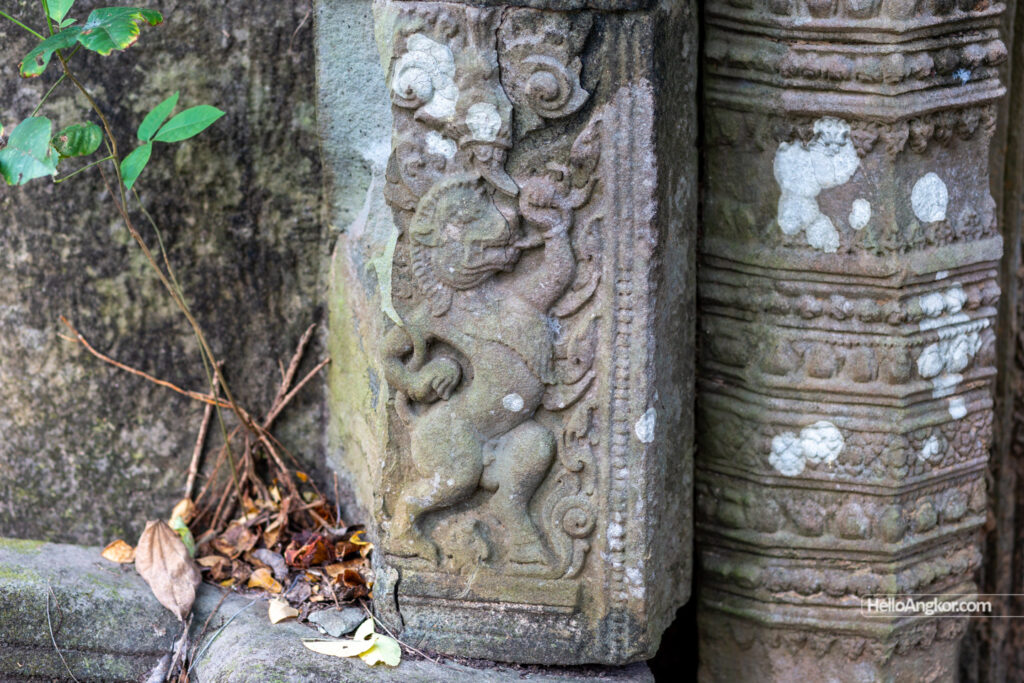
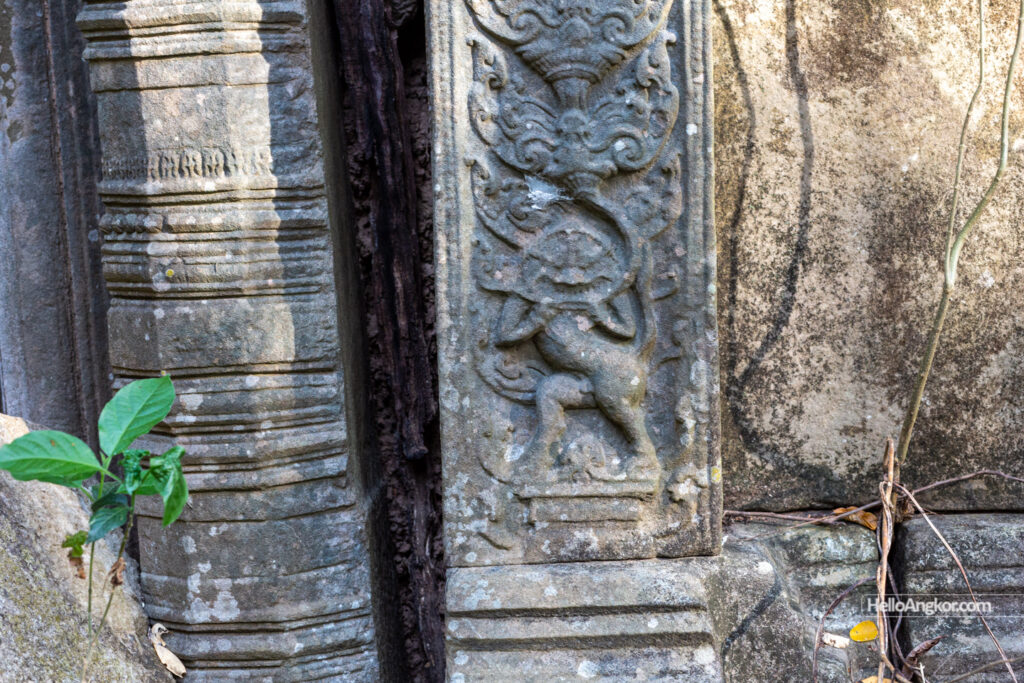
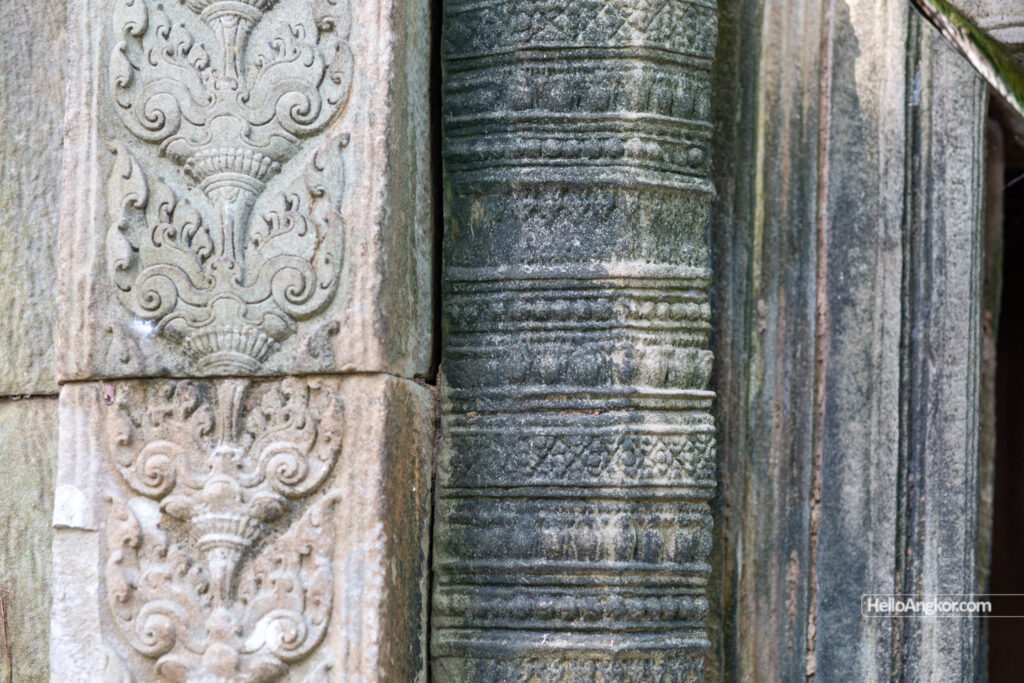
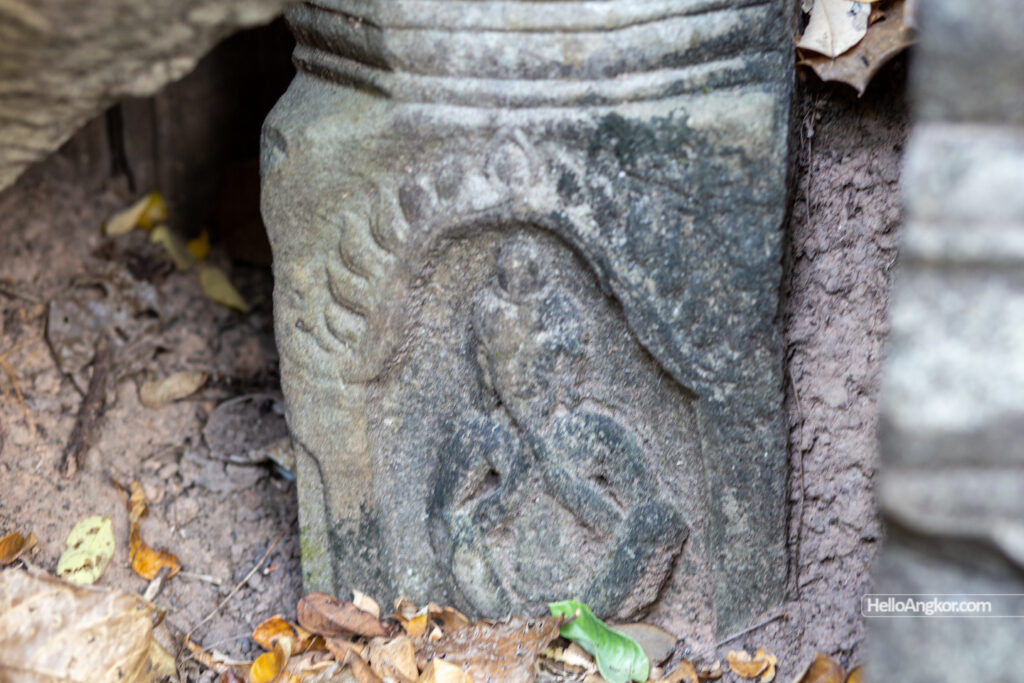

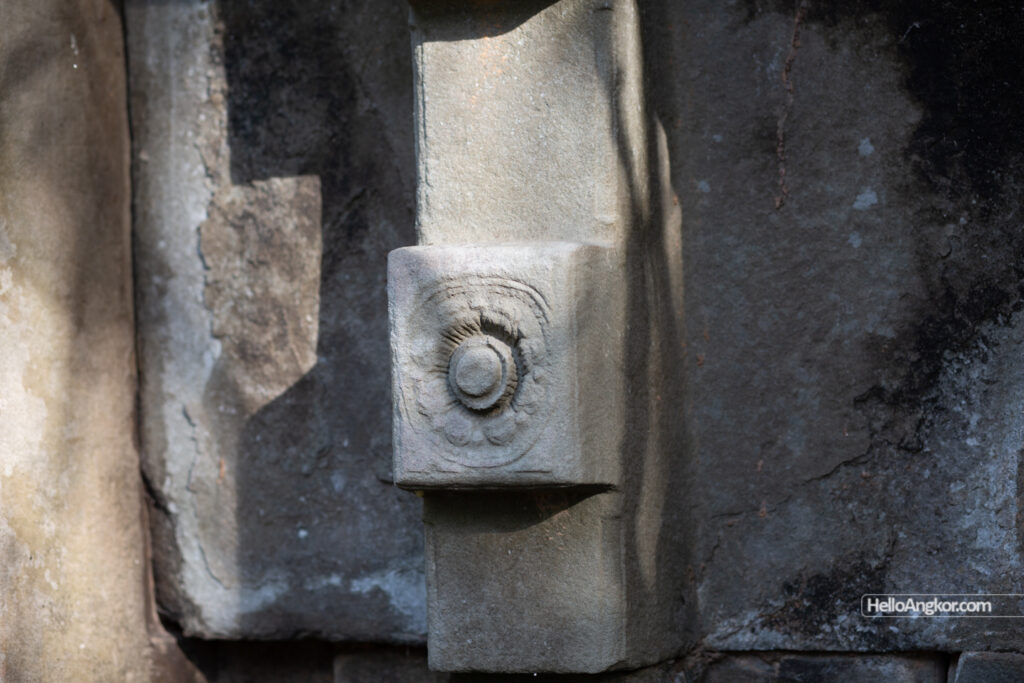
Getting there – the site can be reached via a farmer’s trail leading south off the 2626 which is passable, although it would be a challenge during the rainy season with several water crossings. It can also be reached from the east via a trail that comes off the Krala Peas<>Cha’eh track.
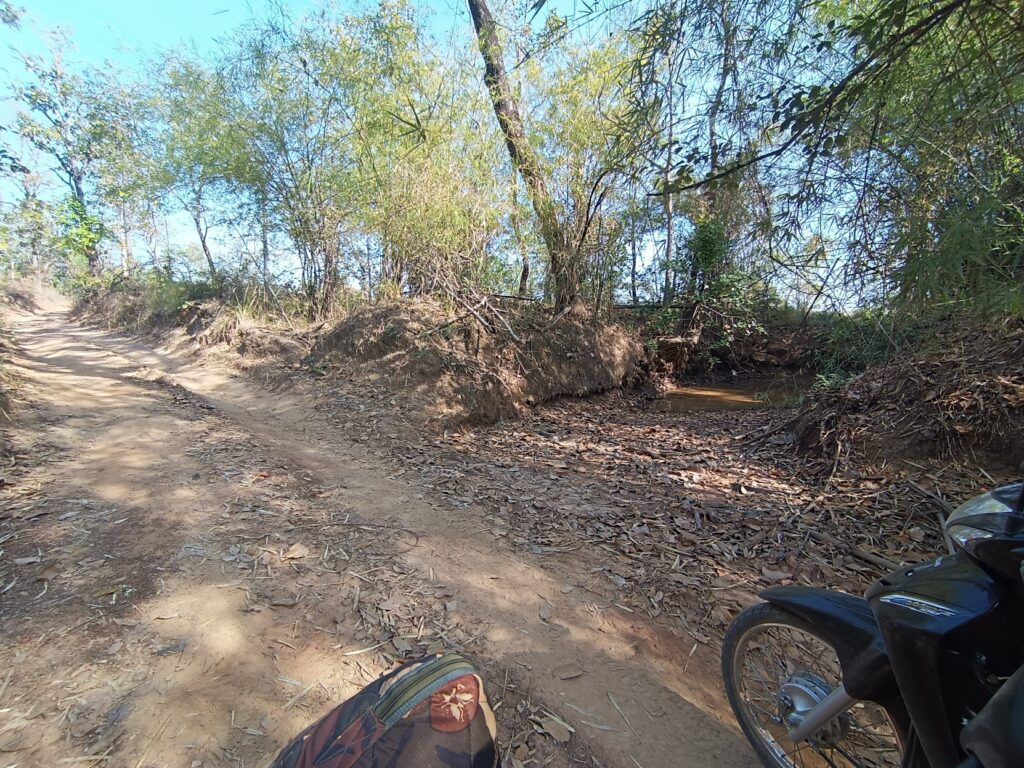
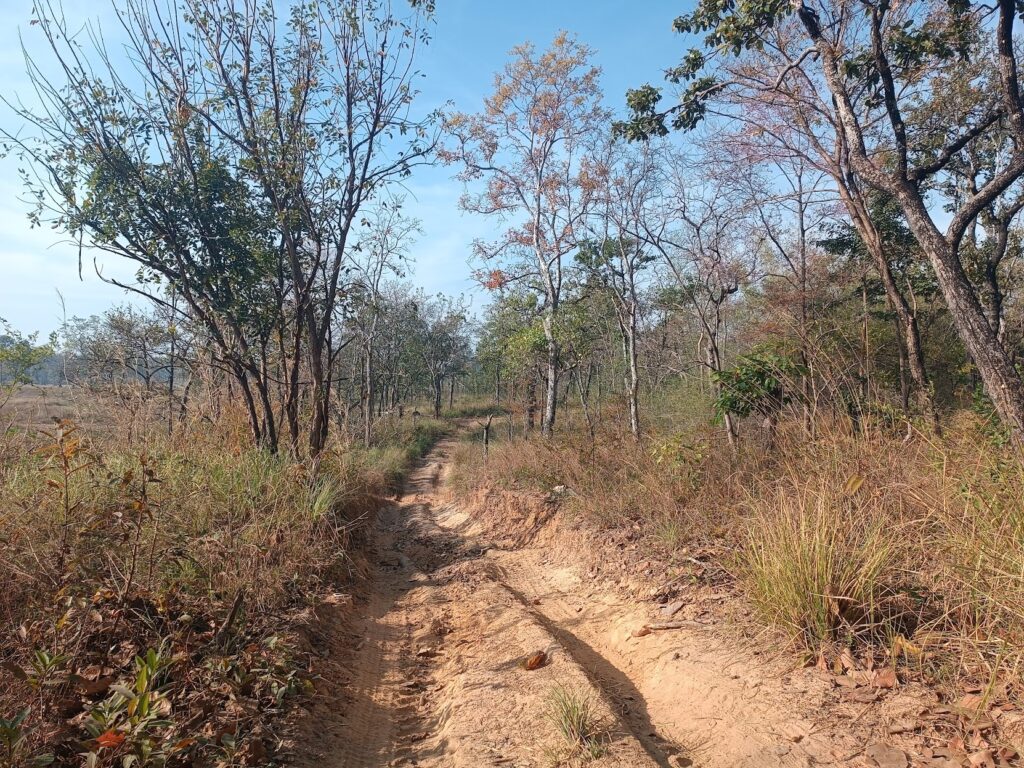
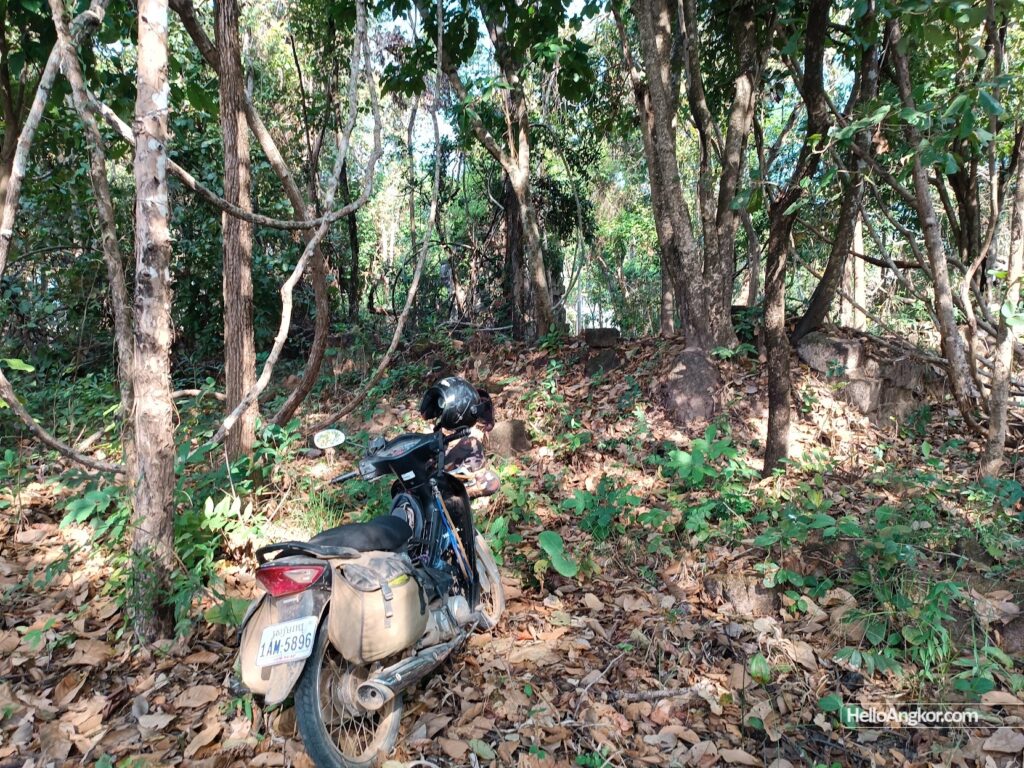
Historical Notes
Prasat Kang Het. It is located about a hundred meters to the E. from the chariot track which leads from Cheam Khsan to Kalapia, about a kilometer from the place where it fords the Stung Chok.
It is a sandstone sanctuary, square, open to the east, with false doors on its other sides. It is placed on a large limonite terrace which is accessed by four steps established on each of the axes. The building, entirely constructed, received only part of the decorations provided for in the original plan. It is almost totally ruined; the east and north faces are collapsed; of face west, only the false door remains; that of the only one is fairly well preserved.
The decoration of the false door of this facade, in addition to the molded frame and the decorated joint covers, also presents ringed octagonal columns, supporting a decorative lintel of type III. In the center of this panel, an indistinct character is represented standing, facing, on the head of a issuant lion; he rests his hands right and left on the heads of monsters which are the origins of the foliage.
The pediment, resting on pilasters with decorated faces, also presents some figures. In the center, a four-headed figure, wearing a conical mukuta, is represented facing the viewer, in the ordinary style of the seated Buddha. In his right hand he holds an indistinct object resembling a handkerchief, and in the other a club; to his right and left are two kneeling women, one offering flowers, the other an arm resting on her chest.
The enclosure, measuring 30 meters N.-S. 32 meters E.-W., was to be formed by a capped limonite wall which was not completed. It was interrupted on the east face by a small rectangular gopura in limonite and sandstone, which also remained unfinished.
Inventaire descriptif des monuments du Cambodge II, E. Lunet de Lajonquière, 1907
Map
Site Info
- Site Name: Kang Het (Pr.) Khmer Name: បា្រសាទកង្ហិត
- Reference ID: HA11898 | Posted: November 13, 2021 | Last Update: March 2nd, 2023
- Tags/Group: pr, rb, T16, Temples
- Location: Preah Vihear Province > Choam Khsant District > Rumdaoh Srae Commune
- MoCFA ID: 615
- IK Number: 303

